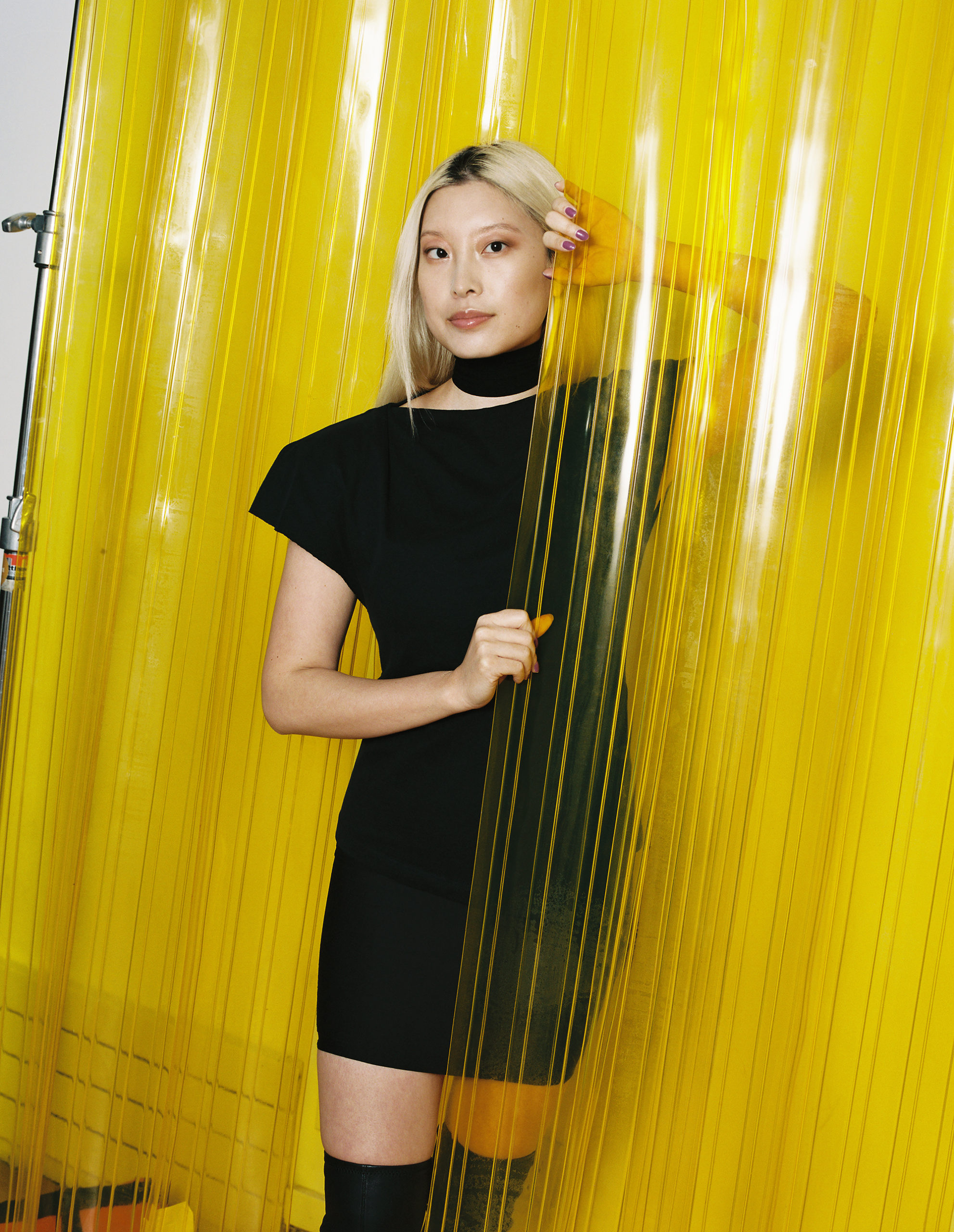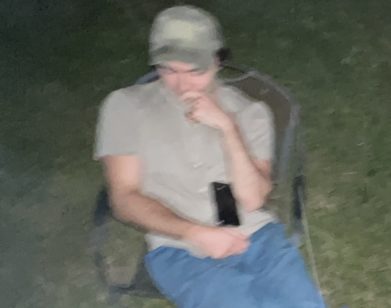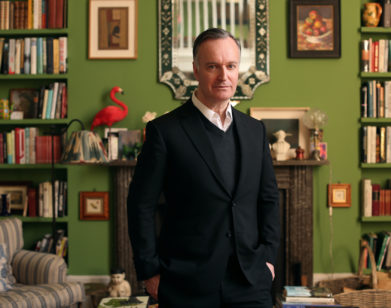lit
Debut Novelist Delia Cai on Olive Garden, Central Places, and Interracial Relationships
FRIDAY 11:01 AM JAN. 6, 2022 NYC
Delia Cai is nervous. The Vanity Fair correspondent just logged onto Zoom for her first-ever interview to promote her debut novel Central Places. With parallels to Cai’s own trajectory, the book follows a New York City magazine sales rep as her life unravels during a trip to her hometown. Part bildungsroman, part Hallmark holiday rom-com, the novel spoke to writer Terry Nguyen, who had some questions about Delia’s writing process, New York social scenes, and the Midwest.
———
TERRY NGUYEN: How are you?
DELIA CAI: I’m, like, having a heart attack, but it’s good to see you.
NGUYEN: I was actually just thinking about how you posted your five-year publishing plan on your IG story. I wasn’t sure if it was close friends or public, but it’s impressive that you managed to stick to it. Do you have any New Year’s writing resolutions?
CAI: I just want to chill and not think about work for once in eight years.
NGUYEN: Fair. When did you decide to write this novel?
CAI: In middle school and high school, I wrote a lot of fan fiction and random stuff that I posted on these websites so that other middle and high school girls could read it. You would post a chapter every week, and if you missed your day, people would be like, “Where is it?” It was this amazing training—like, “Here’s how you write consistently, here’s how you plot ahead.”
NGUYEN: Right.
CAI: Then I went to journalism school and started working in media. During all those years, I didn’t write any fiction. I thought that I lost it, or that journalism was my real calling. Then, in 2019, something in my mind clicked. I was like, “I think you want to go back to writing fiction.”
NGUYEN: How did you decide on the hometown holiday setting? I read it during the holidays and I feel like it was the perfect time.
CAI: Outside of COVID, I’ve gone home for every Thanksgiving, every Christmas. Each successive year the distance between my current life, and who I felt like I was in my hometown, would widen. Sometimes I would be really annoyed that I was back, or sometimes I’d be really cocky and drive around being like, “They don’t know I live in New York.” [Laughs]
NGUYEN: Same.
CAI: It was almost this yearly check-in where I was like, “Who am I now?” Each time, I was peeling back the layers of what growing up there was like. At first, I thought I was going to write a novel about the mother-daughter dynamic that I’m always super fascinated by, but it crystallized into this Hallmark holiday movie trope. It’s like that tweet that says, “It’s really funny living in New York and having an office job, because you realize you’re that person in the Hallmark holiday movie.”
NGUYEN: [Laughs] While writing the book, did it occur to you that it could be turned into a movie?
CAI: I think whenever you’re making anything now it’s like, “Oh, this could be a movie.” Even the way people talk about a good article on Twitter, the automatic response is like, “I can’t wait to see this on the big screen.” So of course I thought about it. Especially when Netflix was coming out with all those holiday rom-coms. I was like, “Alright, I’m going to get in on this.” There’s this fantasy of wanting to see what you’ve come up with in your head reflected back to you in this beautiful, highly produced way. Central Places has a book-to-film agent. Netflix is welcome to call me at any point.
NGUYEN: Because of the visibility that authors have to take on, especially given the popularity of auto-fiction, have you thought about how the book might inform how readers look at your life?
CAI: Definitely. I always ask writers, “How much of this is real?” It’s kind of a bummer for me when people are like, “It’s totally a figment of my imagination.” This novel is emotionally true to my experience of growing up outside of Peoria, Illinois. It’s a collage of random references, things that I wish would’ve happened, things that I thought might have happened. I wrote the novel as if I hadn’t gone to therapy, or as if I had been a slightly different person, but it’s not a tell-all.
NGUYEN: It’s like if Everything Everywhere All at Once was a real thing. It’s an alternate universe of your character. I wanted to talk a bit about how whenever anything vaguely Asian is trending in pop culture, somehow it always gets back to what kinds of people Asian women date. Central Places addresses, that as a romance-adjacent novel, but I personally see it more as an adult puberty realization book. When you were thinking this through, did you have any reservations? Obviously, you knew that this was going to be packaged as an identity book, just as a result of the way the world works.
CAI: From the beginning, I was comfortable with it being a Midwest Asian American girl novel. That came out of having a lot of conversations with Asian American friends in my life where we realized that we come from all these different places in the U.S., and that our experiences are so different. Whenever I meet another Midwest Asian person, we’re like, “Let’s download into each other’s heads immediately,” because it’s rare. As amazing as it is to live in New York and to be dialed into an Asian American community, there’s still times when you’re like, “That’s not really how I grew up.” I didn’t go to a school where half of the population was Asian American. The interracial relationship part of it, in some ways I was writing from personal experience. I didn’t know that it was a hot-button topic in the community, because where I come from, there weren’t enough Asians to talk about what it means to be in interracial relationships. I wish I thought about it when I was a teenager.
NGUYEN: You mentioned meeting other Asian American creatives. Do you feel like you fit into any writing scene or a social scene in New York?
CAI: When I first moved to New York, I thought how it worked was that you would find your people and your scene, and that would be that. I’m envious of certain groups where it seems like they have their own self-contained ecosystem. That looks really cozy and safe. In the past year or so, this group of Asian American women authors have been super welcoming. There’s so much delight in being able to dip in and out. I don’t have to feel like I’m part of one scene or one community.
NGUYEN: They should release applications. I feel like scenes would be much more identifiable.
CAI: Yeah. [Laughs]
NGUYEN: Are there any writers who have influenced your work?
CAI: Yeah. Jenny Zhang’s Sour Heart was one of the first books I read where I was like, “Oh my god, I didn’t know our stories could be out there like this.”
NGUYEN: She’s also a DJ. She’s so cool.
CAI: Even getting that the title Sour Heart is an English version of this phrase in Mandarin—that felt like a secret passcode. I would also say the Jezebel girls, the Rumpus personalities, the early 2010s people who were really good at Twitter. They taught me how to be funny and how to own your thing. Coming from college in Missouri, and then an internship in D.C., it was like, “You can be anything, it turns out.” And in an icky way, I was like, “So that’s how you build a brand.”
NGUYEN: How do you feel about Midwest representation in pop culture? Is it lacking?
CAI: Really regional Midwestern stories are still a bit lacking, but the shift from every show or movie being set in a big city, to these small-town narratives, that’s really touching a nerve. One obvious comparison is the movie Minari. Here’s a Korean immigrant family growing up in a really rural place. I remember watching it when I was writing the novel, and I was like, “Oh my god, there were others.”
NGUYEN: Were you inspired by any rom- coms or romance novels when you were writing this?
CAI: Actually, one book—I don’t know if it’s a romance, but it’s Meg Wolitzer’s The Wife. I was looking at that when I was trying to figure out how to structure my novel. I also really loved The Proposal with Ryan Reynolds and Sandra Bullock.
NGUYEN: Do you think there’s going to be a different response based on the geographical location of the reader?
CAI: I thought my coastal friends would be like, “Damn, that’s crazy.” Whereas people who are from a flyover state would be like, “I’m so glad you wrote about how going to Olive Garden is a big deal.” But it turns out that even if you live an hour’s drive from the neighborhood where you grew up, the act of going home is the same. Everyone has that crazy, Christmas break, “Who am I? Why am I acting 17 years old again?” feeling.
NGUYEN: Do you think your future books will be Midwest-adjacent? Or do you think you’re now moving on to the New York City single woman phase of your writing?
CAI: I think so. And I’m a little embarrassed. There’s so many of those
———
Hair: Adam Szabo using R+Co at Frank Reps
Makeup: Ingeborg using Chanel Beauty
Set Design: Lian Calvo Serrano
Photography Assistant: Victoria Loeb
Production Assistant: Wes Knoll
Location: Prospect Studios







